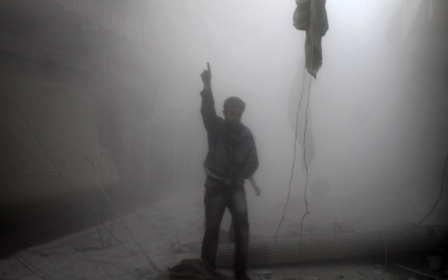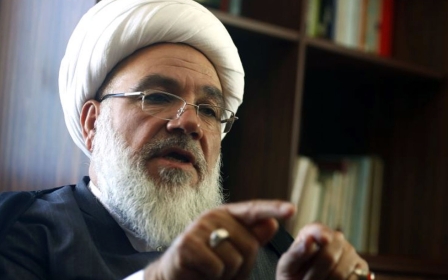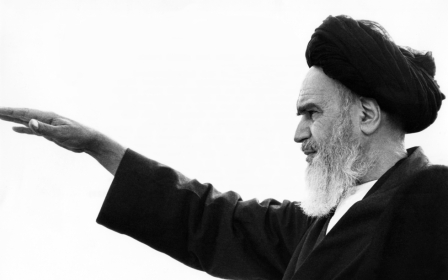‘They exploited sectarianism’: Former Hezbollah leader Tufayli talks Iran, Syria
Sheikh Subhi al-Tufayli has been making waves in recent months with a series of viral speeches blasting Iran’s role in the region in general – and Hezbollah’s role in particular.
Tufayli, one of Lebanon’s leading Shia clerics, was Hezbollah’s first secretary-general from the group’s founding in 1989 to 1991.
In an extended interview with Anadolu Agency, Turkey’s state news agency, the Shia cleric clarified his position with regards to Iran.
“The late Khomeini was honest and loyal,” he said. “Even when Lebanon was occupied by the Israeli enemy, he was honest and stood by us faithfully.”
“But unfortunately his successors who came after him built their politics on Persian identity: We are Persians and have no relation to Islam.
“They exploited sectarianism for the benefit of their Persian project.
“They deceive the Shia in Lebanon, Syria, Iraq and everywhere else telling them ‘you are minorities in Sunni areas’ and this is not true.”
He went as far as to say that Iran had taken “advantage” of the Syrian conflict “as a service for the US against the global Islamic community.”
Tufayli doubled down on his support for the Syrian uprising: “Whoever thinks that the Syrian people will kneel, whoever thinks that he has defeated the Syrian people, whoever thinks that Syria will give up and surrender - has it completely wrong.”
“What happened in Syria until today is more than a victory because this marginalised people – this people who are being fought from all directions, this people who are being conspired against by everyone – were able to pass through harsh situations when everyone thought that they wouldn’t.
“They were able to get up and continue their journey.”
This article is available in French on Middle East Eye French edition.
New MEE newsletter: Jerusalem Dispatch
Sign up to get the latest insights and analysis on Israel-Palestine, alongside Turkey Unpacked and other MEE newsletters
Middle East Eye delivers independent and unrivalled coverage and analysis of the Middle East, North Africa and beyond. To learn more about republishing this content and the associated fees, please fill out this form. More about MEE can be found here.




